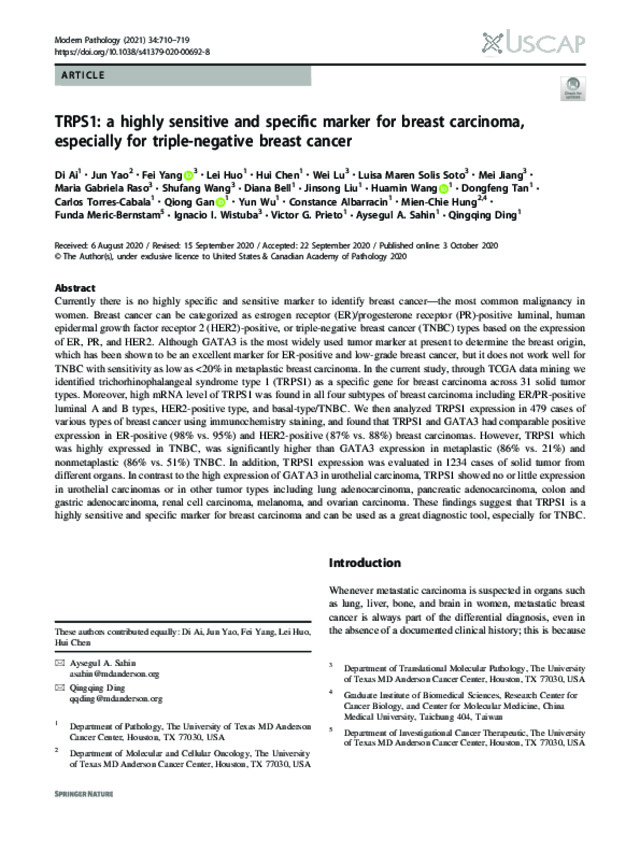| Host |
Rabbit |
| Clone |
ZR382 |
| Format |
Concentrate |
| Reactivity |
- |
| Method |
P |
| Positive control |
Normal breast, breast carcinoma |
| Dilution |
1:100 - 1:200 |
| Isotype |
IgG |
| Immunogen |
Synthesized peptide corresponding to the C-terminus of human TRPS1 protein |
| Localization |
Nuclear |
TRPS1
|
|
ZR382 |
1 ml |
Concentrate |
CE/IVD |
Z2673RL |
-
|
| Host |
Rabbit |
| Clone |
ZR382 |
| Format |
Concentrate |
| Reactivity |
- |
| Method |
P |
| Positive control |
Normal breast, breast carcinoma |
| Dilution |
1:100 - 1:200 |
| Isotype |
IgG |
| Immunogen |
Synthesized peptide corresponding to the C-terminus of human TRPS1 protein |
| Localization |
Nuclear |
TRPS1
|
|
ZR382 |
0.5 ml |
Concentrate |
CE/IVD |
Z2673RS |
-
|
| Host |
Rabbit |
| Clone |
ZR382 |
| Format |
Concentrate |
| Reactivity |
- |
| Method |
P |
| Positive control |
Normal breast, breast carcinoma |
| Dilution |
1:100 - 1:200 |
| Isotype |
IgG |
| Immunogen |
Synthesized peptide corresponding to the C-terminus of human TRPS1 protein |
| Localization |
Nuclear |
TRPS1
|
|
ZR382 |
0.1 ml |
Concentrate |
CE/IVD |
Z2673RT |
-
|
| Host |
Rabbit |
| Clone |
ZR382 |
| Format |
r-t-u |
| Reactivity |
- |
| Method |
P |
| Positive control |
Normal breast, breast carcinoma |
| Dilution |
gebrauchsfertig |
| Isotype |
IgG |
| Immunogen |
Synthesized peptide corresponding to the C-terminus of human TRPS1 protein |
| Localization |
Nuclear |
TRPS1
|
|
ZR382 |
7 ml |
r-t-u |
CE/IVD |
Z2673RP |
-
|



